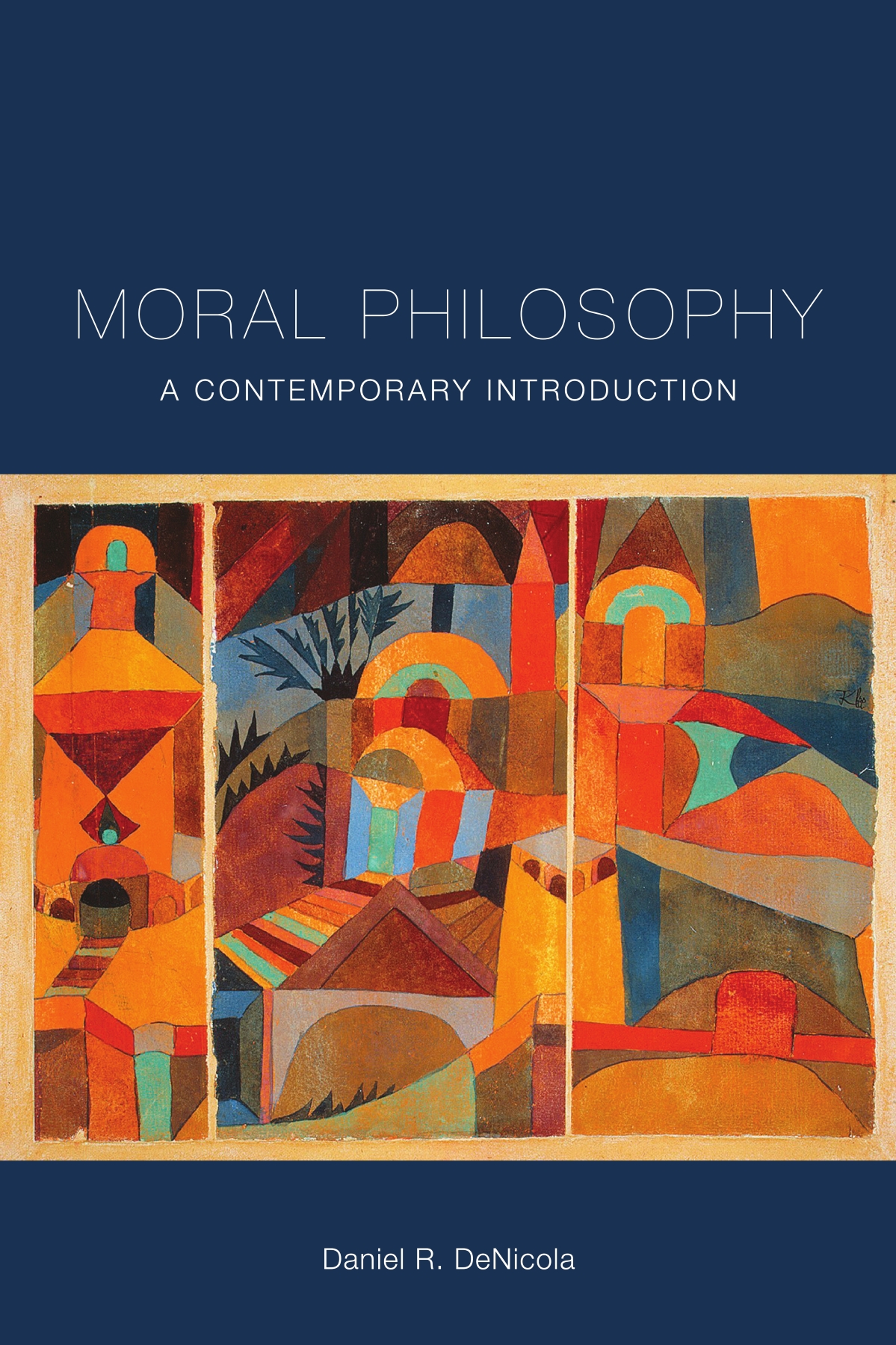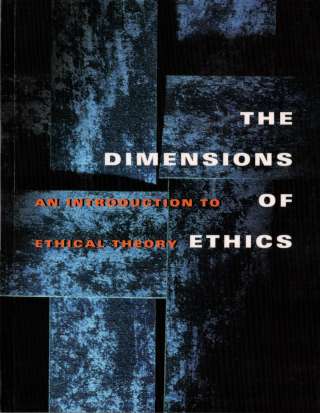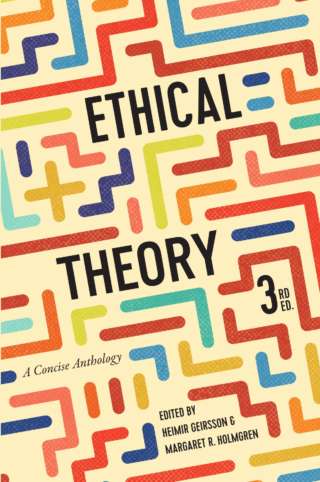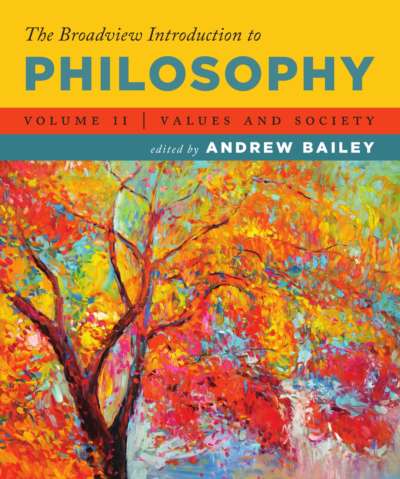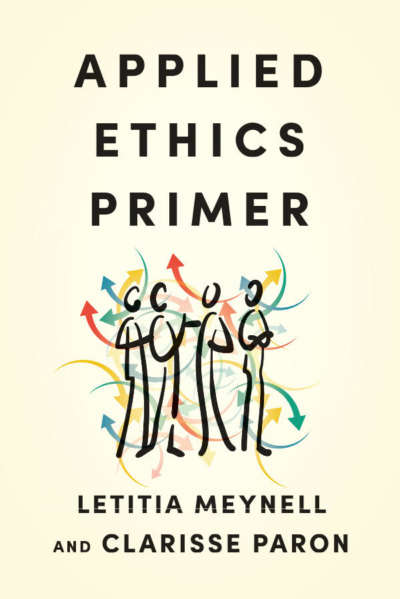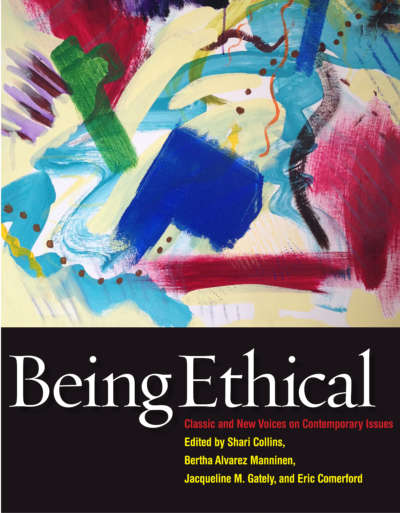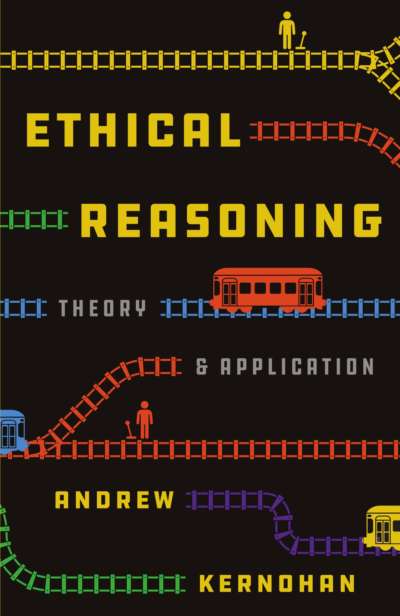Moral Philosophy: A Contemporary Introduction is a compact yet comprehensive book offering an explication and critique of the major theories that have shaped philosophical ethics. Engaging with both historical and contemporary figures, this book explores the scope, limits, and requirements of morality. DeNicola traces our various attempts to ground morality: in nature, in religion, in culture, in social contracts, and in aspects of the human person such as reason, emotions, caring, and intuition.
Moral Philosophy can be used on its own or in a package with A Reader in Moral Philosophy for a discounted price.
Comments
“Using DeNicola’s Moral Philosophy: A Contemporary Introduction has transformed my undergraduate ethical theory course: for the first time, I have a textbook that presents material at exactly the right level of complexity, and keeps the students engaged and enthusiastic about what they are learning. The cases that open each chapter capture students’ attention, and the questions at the end of each chapter lead to sophisticated and lively discussions. The book covers each ethical theory in a way that goes beyond the basics and into the most interesting and controversial implications that the theory may have, encouraging students to think critically and complexly as they are developing their own philosophical positions.” — Lisa Tessman, Binghamton University
“DeNicola provides an introduction to moral philosophy that I am excited to offer to my undergraduate students. The cases for each chapter motivate critical interrogation of the scope and limits of each theory while grounding theory in practice. This book carefully articulates a breadth of moral philosophy sorely lacking from most introductory texts, offering critical discussion reflecting contemporary approaches that are at once inclusive and expansive.” — Sylvia Burrow, Cape Breton University
“With this text, DeNicola has produced a clear introduction to philosophical ethics that strikes a skillful balance between the expectations of the instructor and the needs of the student. DeNicola’s text is comprehensive and readable, yet challenging enough to engage the serious student.” — Bradley Morris, North Dakota State University
Preface and Acknowledgments
CHAPTER ONE: ETHICAL THEORY, MORAL CONCERNS
- 1.1 Morality and Life
- 1.2 The Value of Ethical Study
- 1.3 The Moral Sphere
- 1.4 Identifying the Moral
- 1.5 Philosophical Ethics
- 1.6 Evaluation of Ethical Theories
- 1.7 Cases, Thought-Experiments, and Counterexamples
- 1.8 The Point of It All
- 1.9 Sources of Moral Values
CHAPTER TWO: MORALITY AND RELIGION
- 2.1 The Religious Context
- 2.2 Religion and Morality
- 2.3 Divine Command Theory
- 2.4 Implications
- 2.5 Critique of Divine Command Theory
- 2.6 The Two Faces of Religion
- 2.7 Ethics without God
CHAPTER THREE: RELATIVISM
- 3.1 Forms of Relativism
- 3.2 Moral Cultural Relativism
- 3.3 Critique of Cultural Relativism
- 3.4 Subjectivism
- 3.5 The Case of an Honor Killing
- 3.6 Relativism and Pluralism
CHAPTER FOUR: MORAL NATURALISM
- 4.1 The Natural and the Good
- 4.2 Pre-Modern Advocates of Naturalism
- 4.3 Contemporary Advocates of Naturalism
- 4.4 Implications and Criticisms of Naturalism and Natural Law
- 4.5 Unnatural Practices
- 4.6 Natural Rights
- 4.7 The Critique of Natural Rights
- 4.8 Human Capabilities
- 4.9 Humanity and Morality
CHAPTER FIVE: EGOISM
- 5.1 Our Natural Self-Interest
- 5.2 Psychological Egoism: A Critique
- 5.3 The Self and Homo economicus
- 5.4 Evidence and Altruism
- 5.5 Ethical Egoism
- 5.6 Testing Egoism as a Moral Theory
- 5.7 Enlightened Self-Interest
CHAPTER SIX: UTILITARIANISM
- 6.1 The Right and the Good
- 6.2 From Egoism to Utilitarianism
- 6.3 Bentham’s Calculus
- 6.4 John Stuart Mill
- 6.5 Qualitative Hedonism
- 6.6 The Proof of Utility
- 6.7 From Acts to Rules
- 6.8 The Adequacy and Impact of Utilitarianism
CHAPTER SEVEN: KANTIANISM
- 7.1 Preview
- 7.2 Good Will
- 7.3 Duty and Imperatives
- 7.4 The Categorical Imperative
- 7.5 Alternative Formulations of the Categorical Imperative
- 7.6 The Import of Kantian Ethics
- 7.7 Critique of Kantian Ethical Theory
INTERLUDE: PRINCIPLED ETHICS
CHAPTER EIGHT: CONTRACTARIANISM
- 8.1 The Moral and the Legal
- 8.2 Contracts and Consent
- 8.3 Social Contract Theory
- 8.4 John Rawls and the Just State
- 8.5 Morality by Contract
- 8.6 Critique of Contractualism
- 8.7 Dissent, Violation, and Reform
CHAPTER NINE: VIRTUE ETHICS
- 9.1 Moral Theory and Human Relationships
- 9.2 Character: An Ethic of Virtues and Vices
- 9.3 Confucian Ethics
- 9.4 Aristotle and Our Summum Bonum
- 9.5 Aristotelian Virtues
- 9.6 MacIntyre and the Revival of Virtue Ethics
- 9.7 A Commentary on Virtue Ethics
- 9.8 Challenges to Virtue Ethics
- 9.9 The Virtues of Virtue Ethics
CHAPTER TEN: EMOTIONS AND MORAL SENTIMENT THEORY
- 10.1 The Nature of Emotion
- 10.2 Emotionality and Morality
- 10.3 Moral Sentiment Theory
- 10.4 David Hume’s Moral Theory
- 10.5 Adam Smith on Sympathy and Moral Judgment
- 10.6 Smith’s Impartial Spectator
- 10.7 The Case of Disgust
- 10.8 Commentary and Critique
CHAPTER ELEVEN: CARE ETHICS AND THE FEMINIST STANDPOINT
- 11.1 Stages of Moral Reasoning
- 11.2 Different Voices: From Gilligan to Kittay
- 11.3 Situating Care Ethics
- 11.4 Critique of Care Ethics
- 11.5 Standpoint Theory
- 11.6 Responses to Standpoint Theory
CHAPTER TWELVE: PARTICULARISM AND INTUITIONISM
- 12.1 From Scenarios to Moral Epistemology
- 12.2 Taking Notice
- 12.3 Particularism, Principles, and Perception
- 12.4 Ethical Intuitionism
- 12.5 Critique and Rebuttal
- 12.6 The Social Intuitionist Model
- 12.7 Concluding Reflections
CHAPTER THIRTEEN: METAETHICS
- 13.1 Moral Judgments and Disagreement
- 13.2 Cognitivism
- 13.3 Facts and Values
- 13.4 Non-Cognitivism and Moral Anti-Realism
- 13.5 Emotivism and Prescriptivism
- 13.6 Critique of Non-Cognitivism
- 13.7 Error Theory and Non-Naturalism
- 13.8 The Ground of Morality
CHAPTER FOURTEEN: MORAL THEORY AND THE GOOD LIFE
- 14.1 Moral Saints
- 14.2 Good Enough
- 14.3 Decency, Flourishing, and Morality’s Demands
- 14.4 Moral Repair
- 14.5 Impossible Choices
- 14.6 The Role and the Limits of Moral Theory
Glossary
Index
Daniel R. DeNicola is Professor Emeritus of Philosophy and former Provost at Gettysburg College. He is the author of Learning to Flourish: A Philosophical Exploration of Liberal Education as well as Understanding Ignorance: The Surprising Impact of What We Don’t Know, winner of the 2018 PROSE Award in Philosophy.
To read Chapter 6: Utilitarianism, click here.
Moral Philosophy has a companion website for instructors, which provides multiple choice quizzes for each chapter of the text. The companion website can be accessed here.

